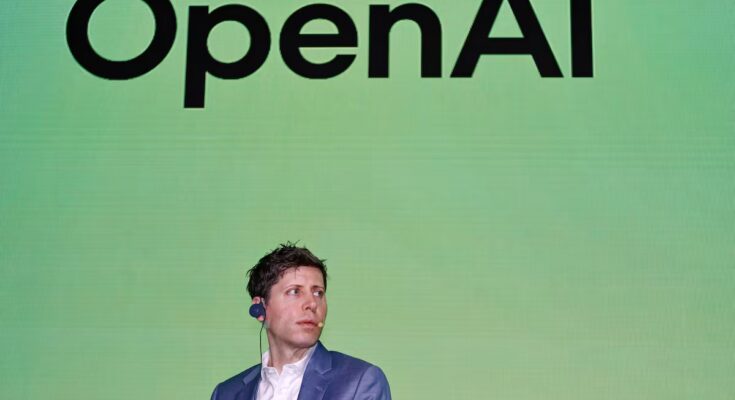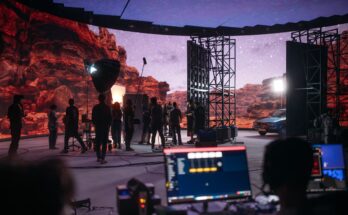OpenAI, the pioneering entity in the development of artificial intelligence, has taken a new step towards becoming a company that begins to make its discoveries profitable. Born as a research institution, a non-profit organization for the development of artificial intelligence, it is restructured to create a traditional company, called OpenAI Group PBC, with the aim of starting to make money and the ability to go public in search of the enormous resources it needs to continue developing artificial intelligence.
Microsoft, which has a significant investment in OpenAI, will hold a 27% stake in the new company, worth around $135 billion (equivalent to around 115.8 billion euros), the company said in a statement on Tuesday.
OpenAI co-founder and CEO Sam Altman will not get a stake in the new company.
“The nonprofit remains in control, and if we do our job well, it will be the best-resourced nonprofit in history. We are excited to get to work immediately to invest the capital,” Altman wrote on the social network X to preview the changes.
For almost a year and a half, Altman’s team and Microsoft executives have been planning the structure that will allow them to take another step forward in the company. The move will allow the creator of the ChatGPT bot to go public and seek funding. And, above all, compete with technological giants such as Google, Amazon or Meta, which have announced investments in the development of artificial intelligence of over 325 billion dollars. OpenAI has committed investments of almost a billion dollars to develop artificial intelligence projects with microchip and data center developers such as Oracle, Nvidia, AMD or Broadcom.
Jakub and I will be doing a live stream and taking questions today at 10:30am pacific.
We have a lot to talk about: obviously we’ll talk about our new corporate structure, but we’ll also discuss our new research goals, the evolution of our product offering, and…
—Sam Altman (@sama) October 28, 2025
The new company will continue to be controlled by the NGO that founded OpenAI in 2015 through a stake valued at around $130 billion.
The structure of the new company, OpenAI Group PBC, would be controlled equally by Microsoft and the former NGO founded by Altman, with approximately 27% of the shares respectively. The rest, just under 46% of the shares, would remain in the hands of current OpenAI workers.
Microsoft saw a 2.2% rise in the stock market after revealing OpenAI restructuring plans. The improvement allowed the Redmond company to recover the four trillion market capitalization, a level it had already recorded in July, but which resumed on the same day that Apple reached it.
“OpenAI has completed its recapitalization, simplifying its corporate structure,” Bret Taylor, chairman of OpenAI’s board of directors, said in a statement.
The company says the restructuring comes after intense year-long negotiations with the attorneys general of California and Delaware, who reviewed the company’s restructuring process. “As a result of these conversations, we have implemented several changes and believe that OpenAI, and therefore the audiences we serve, will benefit,” Taylor added.
“This has been a long and intense negotiation, but I am pleased that OpenAI has committed to a governance structure that prioritizes safety and security and that uses this technology and this company’s resources for the benefit of the public,” Delaware Attorney General Kathy Jennings said in a statement.
According to the details of the agreement, Microsoft will have access to the technology of start of artificial intelligence until 2032, including models that have reached the standard of generative artificial intelligence.
The OpenAI nonprofit will now be known as the OpenAI Foundation and will become one of the richest philanthropic organizations in history thanks to its $130 billion stake in OpenAI Group PBC. The foundation plans to initially focus on funding initiatives to “accelerate progress in health,” among other initiatives. The foundation will in fact invest 25 billion in “health and disease care” and in “technical solutions for AI resilience”.
In the first case, it will finance initiatives to “accelerate progress in the field of health, so that everyone can benefit from faster diagnoses, better treatments and care”. And in the second, there is a layer of cybersecurity resistance. “Just as the Internet required a comprehensive cybersecurity ecosystem – protecting power grids, hospitals, banks, governments, businesses and individuals – we now need a parallel layer of resilience for artificial intelligence,” he explains.
The confusing relationship between Microsoft and OpenAI has been one of the issues that most interested investors. With the restructuring, doubts are clarified and the relationship between the two organizations is clarified.
Microsoft reserves the right to receive 20% of OpenAI’s revenue, people familiar with the matter told Bloomberg. Under the new pact, OpenAI may also have to pay a higher percentage later. In a blog post, the companies indicated that the revenue-sharing agreement will remain in place until a panel of experts tests the capability of artificial generative intelligence (AGI).
However, the note released by the companies establishes some limits to Microsoft’s business. “OpenAI has signed a contract to purchase an additional $250 billion in Azure services, and Microsoft will no longer have the right of first refusal as OpenAI’s compute supplier,” he notes.



